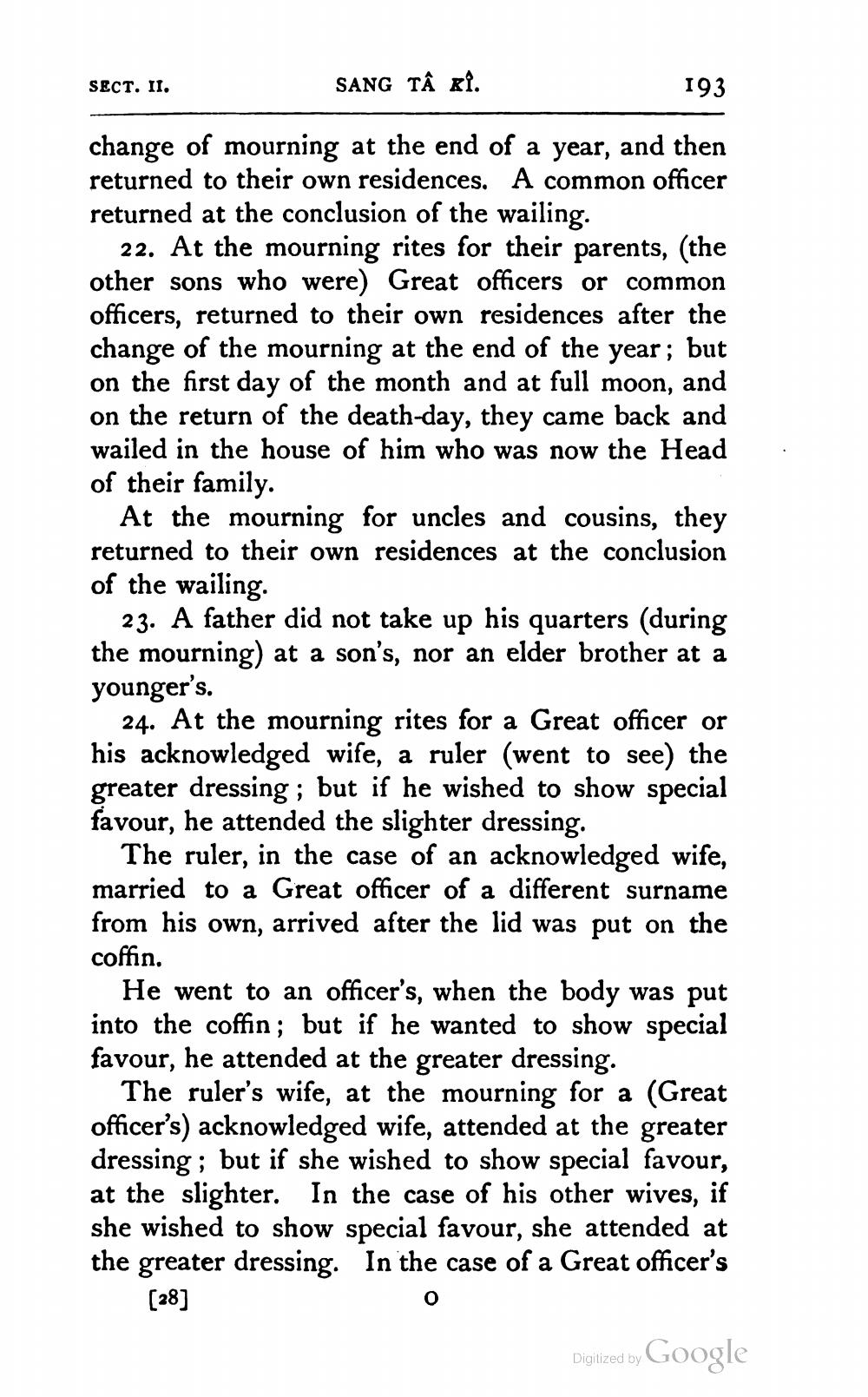________________
SANG TÂ Kİ.
change of mourning at the end of a year, and then returned to their own residences. A common officer returned at the conclusion of the wailing.
22. At the mourning rites for their parents, (the other sons who were) Great officers or common officers, returned to their own residences after the change of the mourning at the end of the year; but on the first day of the month and at full moon, and on the return of the death-day, they came back and wailed in the house of him who was now the Head of their family.
SECT. II.
193
At the mourning for uncles and cousins, they returned to their own residences at the conclusion of the wailing.
23. A father did not take up his quarters (during the mourning) at a son's, nor an elder brother at a younger's.
24. At the mourning rites for a Great officer or his acknowledged wife, a ruler (went to see) the greater dressing; but if he wished to show special favour, he attended the slighter dressing.
The ruler, in the case of an acknowledged wife, married to a Great officer of a different surname from his own, arrived after the lid was put on the coffin.
He went to an officer's, when the body was put into the coffin; but if he wanted to show special favour, he attended at the greater dressing.
The ruler's wife, at the mourning for a (Great officer's) acknowledged wife, attended at the greater dressing; but if she wished to show special favour, at the slighter. In the case of his other wives, if she wished to show special favour, she attended at the greater dressing. In the case of a Great officer's
[28]
O
Digitized by
Google




